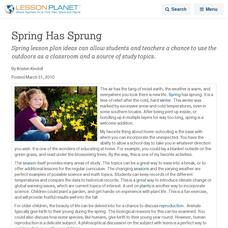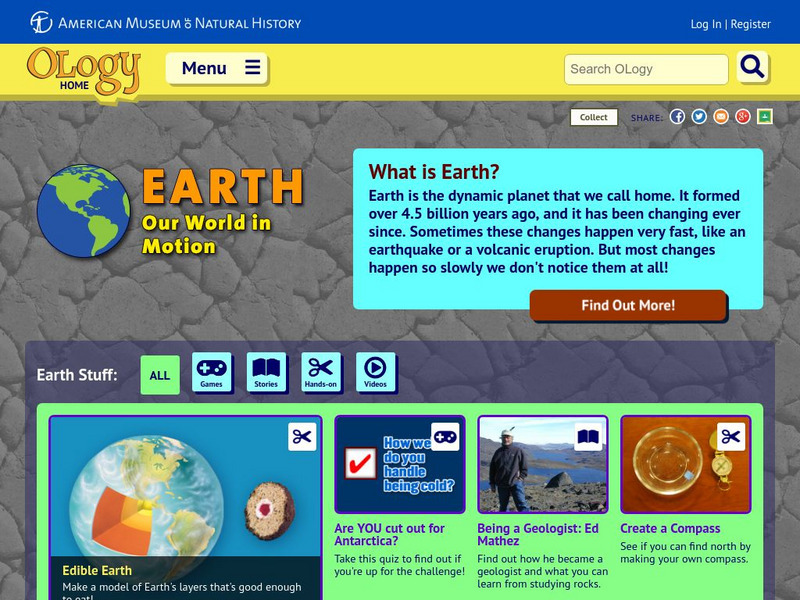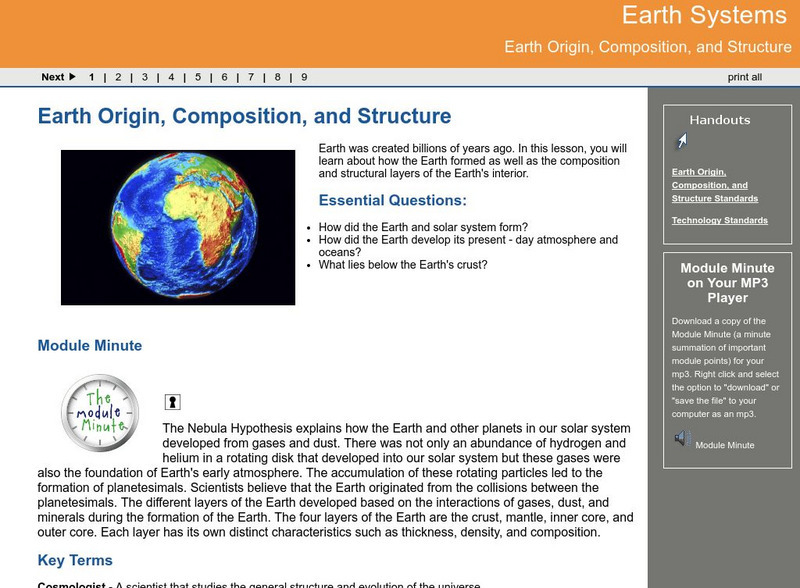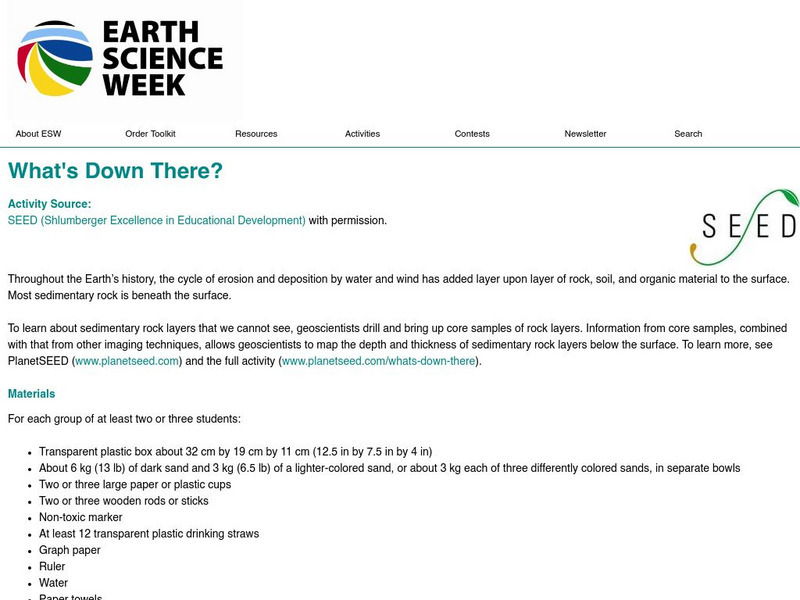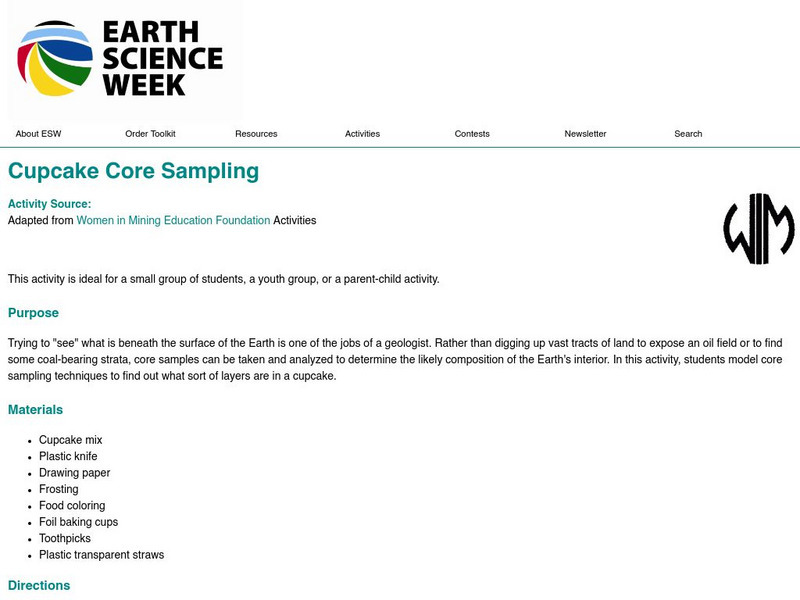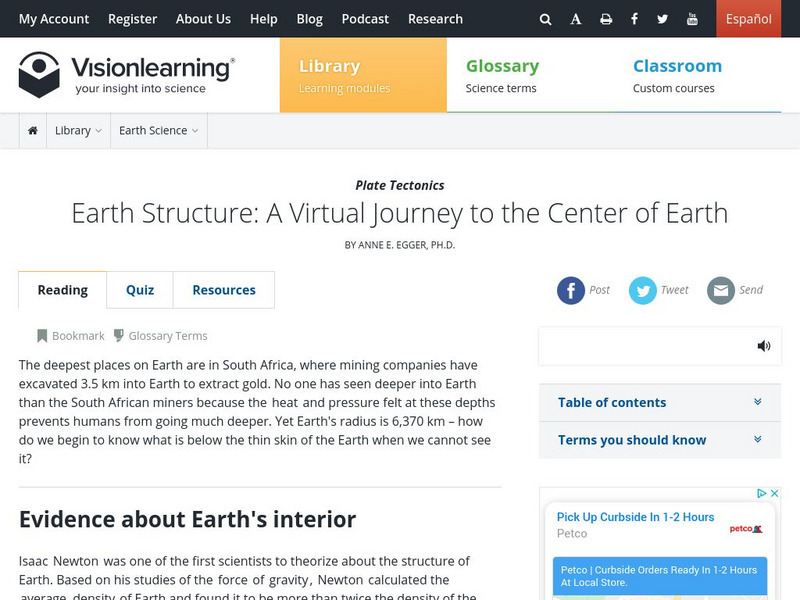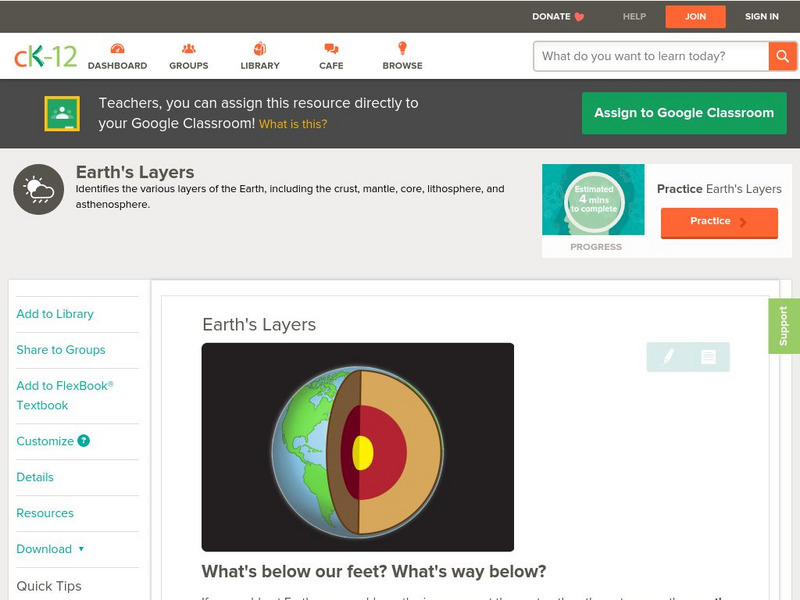Teach Engineering
Flame Test: Red, Green, Blue, Violet?
Let the true colors shine through. Pupils conduct a flame test to identify an unknown element. Class members calculate and prepare specific molarity solutions of three chemicals. Using their observations of the colors emitted, they...
Curated OER
Give me Food!
Students study the food guide pyramid and use it to create their own eating program.In this health lesson students visit websites to calculate their BMR, activity level and weight then create a nutrition plan
Curated OER
Spring Has Sprung
Spring lesson plan ideas can allow students and teachers a chance to use the outdoors as a classroom and a source of study topics.
Curated OER
Civilizations of the Americas
Study and compare multiple aspects of both Aztec and Inca civilizations. Young historians explain how each of the empires came to be, and how they were both defeated by the Spanish. The resource starts out as a good lesson, but is...
Curated OER
Avalanche
Pupils investigate the concept of avalanches and how they effect people who use the slopes. They conduct research using multiple resources that includes the internet in order to create a final oral presentation.
Curated OER
Lesson plan: History Underfoot
Students study Native Americans of Virginia. In this Virginia history lesson, students take on the role of archaeologists as they analyze a site and its artifacts. Students use the information to draw conclusions about the natives who...
Curated OER
Creating Journals
Young scholars take a virtual tour of Yosemite and selects photographs to use in their journal.
Curated OER
What does AG have to do with me?
Students practice alphabetizing while categorizing sources of basic agricultural products. They discuss agricultrual products, discover where they are grown and draw a simple agricultural scene on poster board.
American Museum of Natural History
American Museum of Natural History: O Logy: Earth: Our World in Motion
This resource is a place for learning all about the Earth--the Earth's layers, its history, rocks and minerals, and interesting Earth science facts and discoveries. Explore, ask questions, find information, and meet American Museum of...
Annenberg Foundation
Annenberg Learner: Essential Science for Teachers: Earth and Space 3
Visit an active volcano site to find out the connection between the movement of the Earth's plates and the processes deep within the Earth's interior. [58:23]
CK-12 Foundation
Ck 12: Fourth Grade Science: Earth Science: Relative Ages of Rocks
[Free Registration/Login may be required to access all resource tools.] Looks at how stratigraphy can be used to determine the relative ages of rocks, how unconformities occur, ways to match rock layers in different areas, and how...
Georgia Department of Education
Ga Virtual Learning: Earth Origin, Composition, and Structure
In this lesson, you will learn about how the Earth formed as well as the composition and structural layers of the Earth's interior.
Science Buddies
Science Buddies: Get Down and Dirty: How Does Soil Change With Depth?
What covers less than 10% of the Earth's surface, yet is a vital natural resource for terrestrial life? What filters ground water and supports most of our food production, not to mention the production of building materials and paper?...
Other
Moorland School: Earth Science Zone: The Structure of the Earth
Take a look at the Earth from the inside out. This site shows the different layers of the earth with an explanation of the rocks and materials in each layer. Includes a quiz on the structure of Earth.
Other
The Amazing World of Science With Mr. Green: Introduction to the Atmosphere
This teacher website provides a comprehensive lesson unit on the structure of Earth's atmosphere and how it sustains and impacts life on Earth and its ecosystems. Includes labeled diagrams, student worksheets, a slideshow, flashcards,...
American Geosciences Institute
American Geosciences Institute: Earth Science Week: What's Down There?
Students build a model to learn about the cycle of erosion and deposition by water and wind which deposits layer upon layer of rock, soil, and organic material to the surface.
American Geosciences Institute
American Geosciences Institute: Earth Science Week: Core Sampling
Simulate core sampling with this lesson. Students will see layers of Earth with this activity.
American Geosciences Institute
American Geosciences Institute: Earth Science Week: Cupcake Core Sampling
In this activity, students learn about the technique of core sampling of the Earth by investigating the layers in cupcakes that they bake.
American Geosciences Institute
American Geosciences Institute: Earth Science Week: Dating Popcorn
In this activity, students use popcorn to simulate the process scientists use to date layers in an ice core.
Vision Learning
Visionlearning: Earth Structure: Virtual Journey to Center of the Earth
Find out about the interior structure of the Earth and the role of seismic waves as they move through Earth's layers. The research details both compositional layers as well as mechanical layers.
Vision Learning
Visionlearning: Earth Science: Earth's Atmosphere: Composition and Structure
Instructional module focusing on Earth's atmosphere. Discussion includes major components, layers, air pressure, and scientific monitoring of the atmosphere. Site also includes an interactive practice quiz and links relating to the topic.
CK-12 Foundation
Ck 12: Earth Science: Layers of the Atmosphere Study Guide
[Free Registration/Login may be required to access all resource tools.] This study guide reviews the main points to know about atmospheric layers. Includes several questions to check for understanding.
CK-12 Foundation
Ck 12: Earth Science: Temperature of the Atmosphere
[Free Registration/Login may be required to access all resource tools.] How different temperature gradients separate the atmosphere into distinct layers.
CK-12 Foundation
Ck 12: Earth Science: Earth's Layers
[Free Registration/Login may be required to access all resource tools.] Identifies the various layers of the Earth, including the crust, mantle, core, lithosphere, and asthenosphere.




